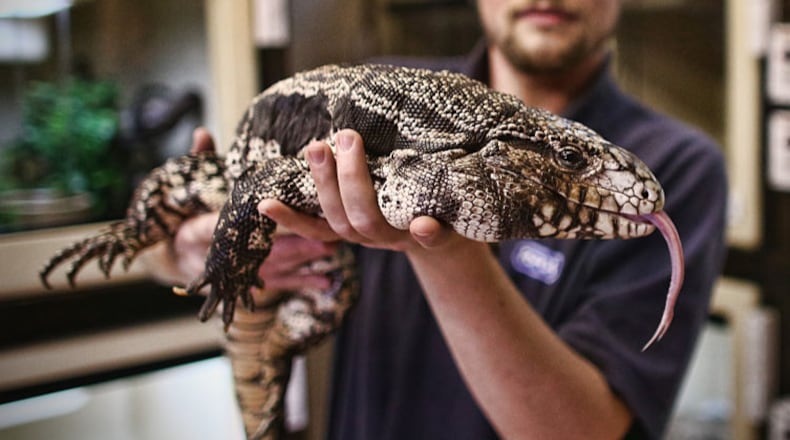Soon it’ll be against the law in Georgia to have a mongoose — no matter if it’s in captivity or on the loose.
State regulators are placing new limits on which wild animals can be bought, sold and kept as pets in Georgia, citing the threat invasive species pose to the state’s native wildlife. Georgia officials want to avoid challenges posed by interloping species that have taken root in states like Florida, where certain varieties of snakes and lizards now bask in the sun and enjoy an all-you-can-eat buffet of defenseless native creatures.
The new rules approved recently by the state Board of Natural Resources add dozens of species to the state’s list of banned or restricted wild animals, including several reptiles, crayfish, fish, birds and more. The updates mark the first additions to the list since 1994.
Starting on Dec. 4, some species added — like mongoose and marbled crayfish — will immediately become illegal to possess. For others — like some types of snails, crayfish, shrimp and mussels — the Department of Natural Resources (DNR) will allow a 12-month grace period. During that time, owners or pet shops with these species currently can sell off their remaining stock, but cannot import new animals after Dec. 4.
For others still, different rules apply. For a subset of reptiles, including Argentine black and white tegus and Burmese pythons, owners can still keep the animals, but must tag and register them with the state within 12 months. After Dec. 4, however, importing or breeding of these species will become illegal.
In a release about the new rules, the DNR said the agency’s biologists added animals based on the risks they pose to Georgia’s natural ecosystems and humans themselves. They also prioritized listing non-native species that already have a presence in Georgia or neighboring states.
The Argentine black and white tegu is one example. The large, South American lizards are popular as pets but are well-adapted to the warm climate of Florida and South Georgia, where they have begun to spread and feed on the eggs and young offspring of native wildlife. DNR says it is currently working with partners to eradicate a population of tegus that have already established themselves in Toombs and Tattnall Counties near Savannah.
Dr. Brett Albanese, an assistant chief with DNR’s Wildlife Conservation Section, said the agency is using the 12-month grace period to give people plenty of time to comply with the new regulations.
“Our biggest thing is we don’t want anyone to think, ‘Oh, I’m going to get in trouble ... I need to dump these crayfish in the creek,’” he said. “That’s actually very illegal and runs counter to what we’re trying to accomplish here.”
Albanese said that anyone with questions about the new rules should contact DNR. A detailed list of animals added to the list and instructions on how to register and tag eligible species is available at https://georgiawildlife.com/.
About the Author
Keep Reading
The Latest
Featured




